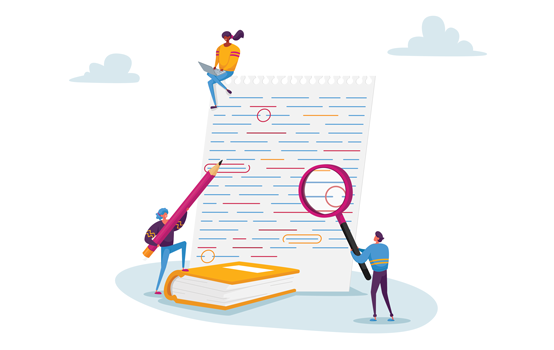Beyond Standardized Testing: Reimagining Educational Assessment

Introduction
When Elena finishes her science project a detailed investigation of local water quality combining field research, laboratory analysis, and policy recommendations her understanding of environmental science exceeds anything a multiple-choice test could measure. Yet in many educational systems, her achievement would be reduced to a single score on a standardized assessment, with the rich complexity of her learning rendered invisible.
This disconnect between authentic learning and traditional measurement practices lies at the heart of ongoing debates about educational assessment. For generations, standardized testing has dominated how we evaluate student achievement, teacher effectiveness, and school quality. These assessments offer administrative efficiency and superficial objectivity, but increasingly, educators and researchers question whether they capture what truly matters in learning.
“The problem isn’t assessment itself,” explains Dr. Marcus Williams, an educational measurement specialist. “We absolutely need ways to understand what students know and can do. The question is whether our current approaches provide meaningful information that actually helps improve learning rather than merely ranking or sorting students.”
Traditional assessments often privilege speed over depth, memorization over understanding, and convergent thinking over creativity. They typically measure a narrow band of cognitive skills while neglecting equally important dimensions like collaboration, problem-solving, and metacognition. For students who experience test anxiety or process information differently, these assessments may reflect their test-taking abilities more than their actual knowledge or capabilities.
Even dedicated teachers who value deeper learning often feel constrained by assessment systems that prioritize easily measurable outcomes. Many report feeling pressured to “teach to the test” rather than designing more meaningful learning experiences. The resulting narrowing of curriculum particularly impacts subjects not heavily tested, like arts, physical education, and social-emotional learning areas crucial for holistic development.
The limitations of traditional assessment become particularly apparent when we consider the skills most valuable in today’s world. Employers consistently rank critical thinking, communication, creativity, and collaboration among their most desired qualities in potential hires. Yet these complex competencies rarely feature prominently in standardized assessments. As our understanding of intelligence has expanded to include multiple dimensions, our assessment practices have largely remained one-dimensional.
Fortunately, innovative educators are pioneering alternative approaches that better align with our evolving understanding of learning. Performance assessments evaluate students’ ability to apply knowledge and skills to authentic tasks designing experiments, creating artistic works, developing business plans, or solving community problems. These assessments more closely mirror the complex, integrated challenges students will face beyond school walls.
Portfolio assessment allows students to curate evidence of their growth over time, reflecting on their learning journey and identifying areas for further development. Digital platforms facilitate collecting diverse artifacts essays, videos, project documentation, peer feedback creating a multidimensional picture of student capabilities. This approach values process alongside product, recognizing that learning pathways matter as much as final outcomes.
Technology offers promising tools for reimagining assessment. Adaptive platforms can adjust questions based on student responses, providing more precise information about their understanding. An AI Homework Helper can analyze patterns in student work, identifying misconceptions and suggesting targeted interventions. Digital badges recognize specific skills and accomplishments, creating more granular recognition than traditional grading systems. These tools enable more personalized assessment without overwhelming teacher capacity.
The shift toward more meaningful assessment requires significant changes in how we think about learning itself. Rather than viewing education as the transmission of fixed knowledge from teacher to student, progressive educators embrace a constructivist approach where learners actively build understanding through experience, reflection, and collaboration. In this paradigm, assessment becomes an integral part of the learning process rather than just a mechanism for judgment at its conclusion.
Formative assessment assessment for learning rather than of learning plays a crucial role in this vision. When teachers gather ongoing information about student understanding and provide specific, timely feedback, they create opportunities for adjustment and growth. Students develop metacognitive skills as they monitor their own progress and set meaningful goals. The focus shifts from comparative judgment to continuous improvement.
Implementing more authentic assessment approaches requires addressing practical challenges. Evaluating complex performances takes more time than machine-scoring multiple-choice tests. Ensuring consistency and fairness demands thoughtful training and calibration. Communicating nuanced results to stakeholders accustomed to simple letter grades requires educational efforts. These challenges are significant but worth tackling given the limitations of traditional approaches.
Some schools have adopted standards-based or competency-based reporting systems that provide more detailed information about student progress toward specific learning goals. Rather than receiving a single grade for “science,” students might receive feedback on their ability to design experiments, analyze data, and communicate findings information far more useful for targeting improvement efforts.
Education policy plays a crucial role in either constraining or enabling assessment innovation. When accountability systems fixate exclusively on standardized test scores, they create powerful incentives that can narrow curriculum and instruction. Policies that encourage multiple measures and local innovation create space for more meaningful assessment practices aligned with deeper learning goals.
As we reimagine assessment, we must ensure that our approaches advance rather than undermine educational equity. Alternative assessments should reduce rather than amplify opportunity gaps. This requires providing all students with rich learning experiences and the scaffolding needed to demonstrate their capabilities through complex performances.
The journey toward more authentic assessment represents part of a larger transformation in education a shift from standardization to personalization, from compliance to engagement, from measuring learning to fostering it. By expanding our vision of assessment, we open possibilities for education that honors the full humanity of learners and prepares them for the complex challenges of our shared future.
Conclusion
When Elena’s science project receives thoughtful evaluation addressing her research methodology, analytical skills, and communication effectiveness, she gains valuable insights about her strengths and growth areas. More importantly, she develops a deeper understanding of herself as a learner capable of meaningful scientific work an outcome far more valuable than any test score could provide.
